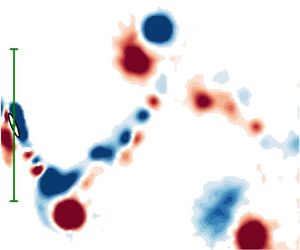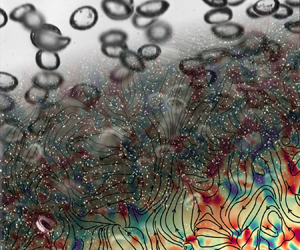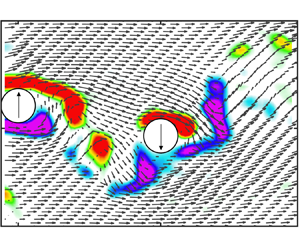Refine listing
Actions for selected content:
1418609 results in Open Access
First record of two cardinalfishes (Teleostei: Apogonidae) from northwestern India
-
- Journal:
- Journal of the Marine Biological Association of the United Kingdom / Volume 104 / 2024
- Published online by Cambridge University Press:
- 13 December 2024, e117
-
- Article
- Export citation
Gender Apartheid and Asylum: Establishing General Risks of Gender-Based Persecution in International Refugee Law
-
- Journal:
- Politics & Gender / Volume 21 / Issue 2 / June 2025
- Published online by Cambridge University Press:
- 13 December 2024, pp. 169-194
-
- Article
- Export citation
“The Anti-Woke Academy”: Dutch Far-Right Politics of Knowledge About Gender
-
- Journal:
- Politics & Gender / Volume 21 / Issue 2 / June 2025
- Published online by Cambridge University Press:
- 13 December 2024, pp. 195-219
-
- Article
-
- You have access
- Open access
- HTML
- Export citation
Data-driven active control of a thin elliptical cylinder undergoing transverse flow-induced vibrations
-
- Journal:
- Journal of Fluid Mechanics / Volume 1001 / 25 December 2024
- Published online by Cambridge University Press:
- 13 December 2024, A35
-
- Article
-
- You have access
- Open access
- HTML
- Export citation
SATISFACTION CLASSES WITH APPROXIMATE DISJUNCTIVE CORRECTNESS
- Part of
-
- Journal:
- The Review of Symbolic Logic / Volume 18 / Issue 2 / June 2025
- Published online by Cambridge University Press:
- 13 December 2024, pp. 545-562
- Print publication:
- June 2025
-
- Article
- Export citation
Atmospheres of influence: the role of journal editors in shaping early climate change narratives
-
- Journal:
- The British Journal for the History of Science , First View
- Published online by Cambridge University Press:
- 13 December 2024, pp. 1-20
-
- Article
-
- You have access
- Open access
- HTML
- Export citation
Joseph Joachim and the Violin Romance: Reforming the Playground of Virtuosos
-
- Journal:
- Nineteenth-Century Music Review / Volume 22 / Issue 1 / April 2025
- Published online by Cambridge University Press:
- 13 December 2024, pp. 63-92
-
- Article
-
- You have access
- Open access
- HTML
- Export citation
Gino Vlavonou. Belonging, Identity, and Conflict in the Central African Republic. Madison, WI: University of Wisconsin Press, 2023. 243 pp. Bibliography, Index. $89.95. Paper. ISBN: 9780299345709.
-
- Journal:
- African Studies Review / Volume 67 / Issue 4 / December 2024
- Published online by Cambridge University Press:
- 13 December 2024, pp. 1155-1157
-
- Article
-
- You have access
- HTML
- Export citation
The Lion Statue of Ain Dara: Revealing the Fate of an Icon of Syrian Archaeology Looted During the Conflict
-
- Journal:
- International Journal of Cultural Property / Volume 31 / Issue 2 / May 2024
- Published online by Cambridge University Press:
- 13 December 2024, pp. 154-176
-
- Article
-
- You have access
- Open access
- HTML
- Export citation
Independently tunable metamaterial inspired compact triband dual-sense circularly polarized antenna
-
- Journal:
- International Journal of Microwave and Wireless Technologies / Volume 17 / Issue 1 / February 2025
- Published online by Cambridge University Press:
- 13 December 2024, pp. 104-112
-
- Article
- Export citation
The effect of anti-scatter grids on radiation exposure during transcatheter patent ductus arteriosus closure in premature infants
-
- Journal:
- Cardiology in the Young / Volume 35 / Issue 2 / February 2025
- Published online by Cambridge University Press:
- 13 December 2024, pp. 361-367
-
- Article
- Export citation
LAP volume 66 issue 4 Cover and Front matter
-
- Journal:
- Latin American Politics and Society / Volume 66 / Issue 4 / November 2024
- Published online by Cambridge University Press:
- 13 December 2024, pp. f1-f3
-
- Article
-
- You have access
- Export citation
Paleoclimate Proxies and the Benefits of Disunity – ERRATUM
-
- Journal:
- Philosophy of Science / Volume 92 / Issue 1 / January 2025
- Published online by Cambridge University Press:
- 13 December 2024, p. 238
- Print publication:
- January 2025
-
- Article
-
- You have access
- Open access
- HTML
- Export citation
Velocity fluctuations for bubbly flows at small Re
-
- Journal:
- Journal of Fluid Mechanics / Volume 1001 / 25 December 2024
- Published online by Cambridge University Press:
- 13 December 2024, A34
-
- Article
-
- You have access
- Open access
- HTML
- Export citation
Incisocalliope aestuarius (Crustacea: Amphipoda: Pleustidae), an old introduced species in the Gironde Estuary (SW France)
-
- Journal:
- Journal of the Marine Biological Association of the United Kingdom / Volume 104 / 2024
- Published online by Cambridge University Press:
- 13 December 2024, e116
-
- Article
-
- You have access
- Open access
- HTML
- Export citation
Branding the white nation: Platform capitalism and the semiotics of far-right organizing
-
- Journal:
- Language in Society , First View
- Published online by Cambridge University Press:
- 13 December 2024, pp. 1-27
-
- Article
-
- You have access
- Open access
- HTML
- Export citation
Mapping the properties of wake-induced vibration on a circular cylinder
-
- Journal:
- Journal of Fluid Mechanics / Volume 1001 / 25 December 2024
- Published online by Cambridge University Press:
- 13 December 2024, A33
-
- Article
- Export citation
Identifying damage to composite materials based on deep residual shrinkage network
-
- Journal:
- The Aeronautical Journal / Volume 129 / Issue 1331 / January 2025
- Published online by Cambridge University Press:
- 13 December 2024, pp. 156-168
-
- Article
- Export citation
































